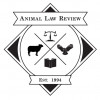INTRODUCTION
THE ROLE OF ANIMALS IN LIVABLE COMMUNITIES
by Congressman Earl Blumenauer
REMARKS
TEN LESSONS OUR CONSTITUTIONAL EXPERIENCE CAN TEACH US ABOUT THE PUZZLE OF ANIMAL RIGHTS: THE WORK OF STEVEN M. WISE
by Laurence H. Tribe
DISMANTLING THE BARRIERS TO LEGAL RIGHTS FOR NONHUMAN ANIMALS
by Steven M. Wise
ESSAYS
CRIME VICTIMS’ RIGHTS: CRITICAL CONCEPTS FOR ANIMAL RIGHTS
by Douglas E. Beloof
This essay is written by a legal advocate in a socio-legal movement, the crime victims’ rights movement, to legal advocates in the animal rights movement. It addresses three issues from the perspective of an outsider to the animal rights movement. First, the essay addresses the problems in the relationship between rights philosophy and successful legal rights advocacy; second, the essay reviews two animal rights legal advocate strategies of incrementalism and the common law coup; finally, the essay concludes with three practical suggestions for the animal rights movement about joining a part of the victims’ rights movement to reach mutually identified goals.
A STEP AT A TIME: NEW ZEALAND’S PROGRESS TOWARD HOMINID RIGHTS
by Rowan Taylor
Mr. Taylor writes about the Great Ape Project’s campaign to win fundamental rights for all hominids with New Zealand’s Animal Welfare Act. While the Act was a significant step in the struggle for hominids’ rights, larger steps, including a Nonhuman Hominid Protection Bill, will soon follow.
ARTICLES
RECOVERY OF “NON-ECONOMIC” DAMAGES FOR WRONGFUL KILLING OR INJURY OF COMPANION ANIMALS: A JUDICIAL AND LEGISLATIVE TREND
by Sonia S. Waisman and Barbara R. Newell
Ms. Waisman and Ms. Newell discuss the recent legislative actions regarding recovery of non-economic damages for companion animals. They explore the history of human loss of consortium and companionship damages, the role nonhuman animals play in human lives, and propose legislation that will adequately reflect nonhuman animals’ place in our society.
WILL THE HEAVENS FALL? DE-RADICALIZING THE PRECEDENT-BREAKING DECISION
by Paul Waldau
This article offers an extended analogy for the purpose of posing basic questions about proposals for granting legal rights to some nonhuman animals. The analogy is drawn from the precedent-breaking eighteenth century English case Somerset v. Stewart, which liberated an African slave. The article highlights the complex cultural backdrop in each situation, and suggests that the comparison helps one see the nature and possibilities of precedent-breaking decisions that rely on various non-legal resources available to judges who, because of conscience, principle, or policy considerations, choose not to follow established precedent.
LEGAL TRADE IN AFRICAN ELEPHANT IVORY: BUY IVORY TO SAVE THE ELEPHANT?
by Sam B. Edwards, III
Mr. Edwards discusses the recent decision to conduct a one-time sale of ivory from Zimbabwe, Namibia, and Botswana to Japan under the Convention on International Trade in Endangered Species (CITES). In theory, limited trade in African elephant ivory is possible and even advantageous for the various actors. However, in practice, the management controls on the supply side in Africa and the demand side in Japan are insufficient to prevent poaching and the eventual decimation of the species. This one-time sale should act as a warning to prevent further sales without a significant revamping of the control mechanisms.
“CRUELTY TO POLICE DOG” LAWS UPDATE
by Craig Scheiner
Mr. Scheiner updates his article, Statutes with Four Legs to Stand On?: An Examination of “Cruelty to Police Dog” Laws, published in Volume 5 of Animal Law.
2000 LEGISLATIVE REVIEW
by Alicia Finigan
COMMENTS
DEAD DOG RUNNING: THE CRUELTY OF GREYHOUND RACING AND THE BASES FOR ITS ABOLITION IN MASSACHUSETTS
by Erin N. Jackson
Ms. Jackson explores the greyhound racing industry in Massachusetts in her article and discusses the widespread and well-known animal abuse rampant in the industry. The author argues that greyhound racing in the state of Massachusetts should be abolished on the grounds that the abuse the dogs suffer is analogous to that perpetrated in outlawed animal fighting sports and that industry practices violate the basic Massachusetts anti-cruelty statute and common law.
REBUILDING THE WALL
by Bill Davis
This essay discusses recent developments in the push towards recognizing rights for nonhuman animal and submits that almost every current advocate for, and critic of, the movement embraces intelligenceism-a cognition-based bias that may well hamper the expansion of rights beyond a small group of human-like nonhuman animals.
